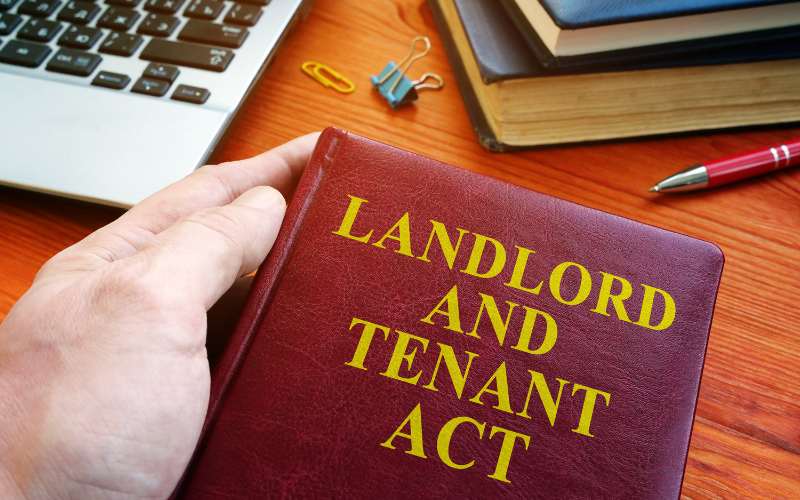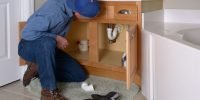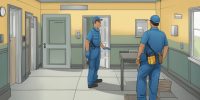Last Updated on May 8, 2024 by Kelvin Nielsen
As a tenant in Georgia, you have a right to live in habitable living conditions. This legal right is enshrined under the state’s “implied warranty of habitability.” The warranty simply requires landlords to only rent out a unit that meets the basic structural, safety, and health codes.
At the state level, landlords must provide the following as per § 44-7-13.
Other landlord responsibilities in Georgia are determined by locally applicable codes. So make sure to check your city or county laws for a more comprehensive list.
What are Uninhabitable Living Conditions in Georgia?
As already mentioned, most landlord responsibilities for habitability in Georgia are determined at the local level. That said, there are specific conditions that will undoubtedly make a unit uninhabitable.
Examples of such conditions include the following.
- Lack of essential utilities. This can include essentials such as inoperable electrical systems, non-functioning toilets or showers, or lack of clean, running water.
- Structural issues. GA requires that rental units meet the state’s basic structural codes. Issues such as unstable floors or walls, a leaky roof, or exposed wiring would make a unit uninhabitable.
- Severe pest infestations. Infestations from pests such as rodents, roaches, or insects may also make a unit uninhabitable in Georgia. The landlord may also be responsible if such a pest infestation arises out of their negligence after the tenant has already moved in.
- Presence of mold. The presence of extensive mold growth, especially black mold, would make a unit uninhabitable in Georgia.
- Lack of basic sanitation. Lack of running water, overflowing sewage, or sewage leaks would make a unit not habitable.
This list is by no means exhaustive. As such, make sure to check your city or county laws for specific regulations on what exactly constitutes uninhabitable living situations.
Are Landlords Responsible for Air Conditioning in Georgia?
No! In Georgia, air conditioning is not a requirement for habitability. However, one exception stands! If the landlord chooses to provide it out of their own volition, then they would have a duty to maintain it in a reasonable working condition.
Are Landlords in Georgia Required to Provide Hot Water?
In the state of California, for instance, landlords must provide their tenants with hot and cold running water. This is enshrined under the state’s Civil Code Section 1941.1. The same is also true in the state of Texas, where landlords must supply hot water at a minimum temperature of 120 degrees Fahrenheit.
However, when it comes to Georgia, landlords have no specific requirements to provide hot water. That said, if the landlord chooses to provide it, then they must maintain it throughout the lease.
Who is Responsible for Replacing Light Bulbs in Georgia?
Check the lease for specific responsibilities. But generally speaking, the responsibility for light bulb replacement is usually as follows.
| Tenant Responsibility | Landlord Responsibility |
| Replacing permanently installed light fixtures within your rental unit. Examples include kitchen lights, ceiling fans, and wall sconces. | Replacing light bulbs in common areas, such as in laundry walls and stairwells. |
| Replacing outdoor fixtures, unless they are in hard-to-reach areas. | Replacing light bulbs in hard-to-reach areas or dangerous locations within your rental unit. |
| Replacing any lighting you brought into the property, such as desk, floor, or table lamps. | Replacing bulbs in built-in appliances, such as those in refrigerators, dryers, and ovens. |
Whenever unsure about anything, please make sure to seek clarification from the lease or your landlord.
Who is Responsible for Mold Removal in Georgia?
The responsibility depends on the causative agent. If the landlord causes it, then they are responsible for getting it removed. If it’s the renter, then that becomes their responsibility.
A landlord in Georgia may become responsible for mold removal if the mold growth stems from issues like:
- Improper ventilation
- Faulty plumbing
- Leaky roofs
As for the tenant, the responsibility may become theirs if the mold is caused from their negligent actions. Such actions include excessive moisture from showering or drying clothes indoors.
Who is Responsible for Pest Control in Georgia?
Generally speaking, the responsibility for pest control in Georgia falls on the landlord. They especially become responsible if the infestation:
- Occurs before the tenant moves in.
- Fails to take reasonable measures to prevent future infestations.
- Fails to respond to the tenant’s request for pest remediation within a reasonable time.
A tenant may also become responsible for pest control in certain situations. Such as:
- Fails to maintain a clean and sanitary living environment.
- Fails to promptly notify the landlord when pest problems arise.
The lease may also contain provisions on who becomes responsible for what during a tenancy.
Conclusion
There you have it – uninhabitable living conditions in Georgia. If you believe your unit isn’t on par with your city or county housing codes, you can exercise certain rights. Such as, suing the landlord, reporting them to a local housing authority, or repairing the issue yourself and then making appropriate deductions from future rent payments.
Sources: GA Code Title 44 Chapter 7, O.C.G.A § 44-7-13, Georgia Landlord-Tenant Handbook
Disclosure: The content herein isn’t a substitute for advice from a professional attorney. It’s only meant to serve educational purposes. If you have a specific question, kindly seek expert attorney services.

Hi, I’m Kelvin Nielsen, an experienced landlord and accomplished real estate lawyer. My focus is on answering your questions about renting in the hopes of making your life as a renter or a landlord a bit easier.







